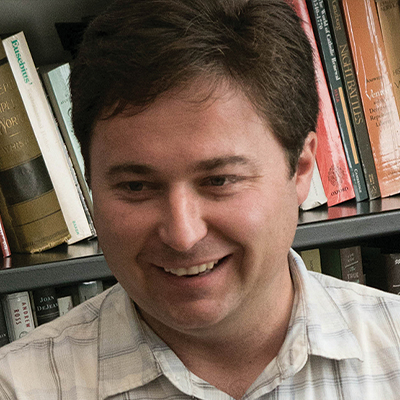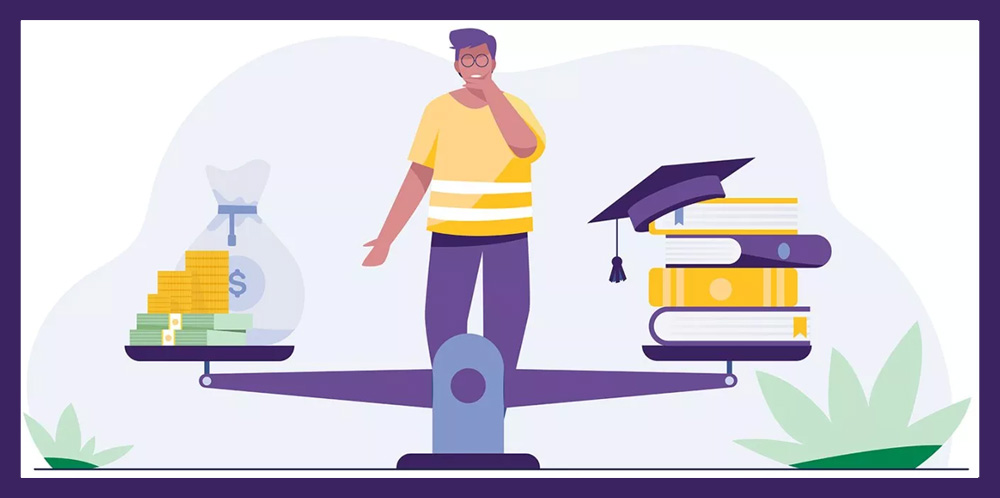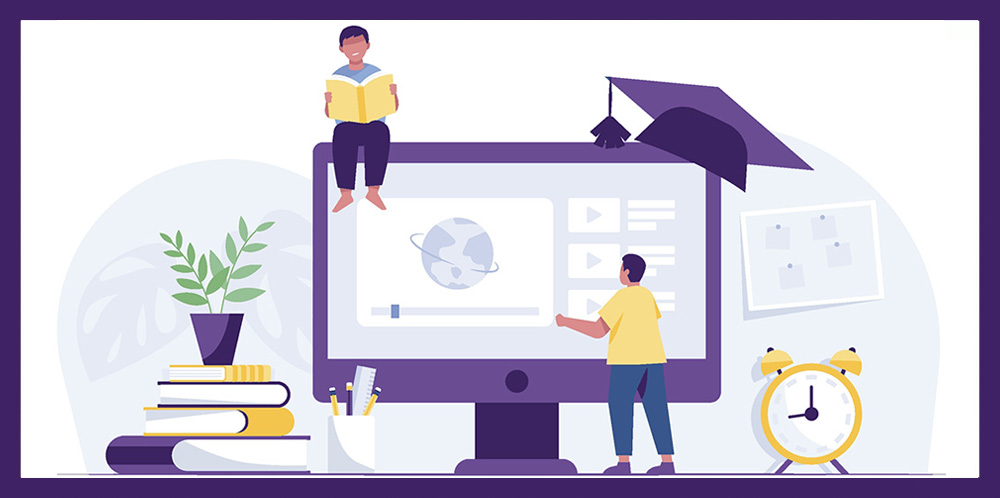History
Studying the past is the key to the future.
History is filled with examples of triumphs and failures. By examining how events unfolded in the past, you can deepen your understanding of current social, political and economic issues — and offer valuable perspectives to future employers in both the public and private sectors.
Develop deeper perspectives on modern life
Studying history isn’t about memorizing dates — it’s about gaining insight into the ways our world once worked and how that influences modern societies. By contextually understanding the past, you’ll be able to offer clearer perspectives on global issues that impact how organizations operate today.
Explore your historical interest areas
In addition to learning about general world and U.S. history, you’ll examine specific topics in depth, such as the Civil War, Medieval Europe, the Middle East, the Cold War, and women in history. Through your history studies, you will be able to choose the ones that interest you most and pursue them with passion.
Gain core skills to contribute to any organization
In addition to becoming a knowledgeable historian, you’ll also become a strong writer, an effective researcher, and a perceptive analyst — abilities that are in demand and will serve you well in any field you choose to enter.
At a Glance

Degree Type
Bachelor of Arts
Department
School/College
College of Arts and Sciences
Next Steps
Interested in this major? Here's what you can do next:
With challenging and relevant courses, outstanding faculty, small class sizes, and an emphasis on hands-on learning, the history program will position you to succeed in your chosen career.
Degree requirements
Find out what it takes to earn a degree in history and explore the courses.
Highlighted Courses
Get familiar with some of the courses you might take in this major.
HIST 326: Civil War: Slavery to Civil Rights
An examination of sectionalism, Civil War and the Reconstruction with emphasis on primary source interpretation. Topics include racism and slavery, the contrasting natures of Northern and Southern societies, the politics of sectionalism, the causes and goals of the Civil War, and racial relationships and policies from Reconstruction to the modern civil rights movement.
Read descriptionHIST 313: Europe and Empire
This course uses the imperial histories of Spain, England, and France to address how European imperialism helped to structure the modern world, anticipating today's globalization. It explores the impact of imperialism and colonialism on peoples and institutions both in Europe and in the rest of the world.
Read descriptionHIST 324: Society and Culture in U.S. History
A thematic study of the social evolution of the United States during its first two centuries of development. Significant intellectual and cultural changes are emphasized through the lens of the five pillars of society, family, education, economics, politics, and religion.
Read descriptionHIST 341: United States Women's History
An in-depth investigation of the interaction of society, women and the community in American history from 1600 to the present. Special emphasis is placed on the ways gender, ethnicity and class influence the role of women in the community with respect to legal rights, sexuality, attitudes and perceptions.
Read descriptionHIST 380: History of Modern China
This course explores the historical transformations that have led to the development of modern China. The course opens with an examination of the Qing dynasty, the last major dynasty in Chinese history, and then explores the forces, internal and external, driving China toward a major revolution in the 20th century.
Read descriptionHIST 384: History of the Islamic World
This course examines the history of the Islamic world. Major topics may include the birth of Islam, the caliphate, interactions with the European and Asian worlds, the revival of Islam, problems of modernization and development, as well as cultural, military, political and intellectual innovations in the Middle East since the 7th century.
Read descriptionRecommended Minors
Want to add even more value to your degree? Consider one of these minors to gain a unique combination of skills and perspectives.
We offer hands-on opportunities that give you the freedom to explore your passion through real-world work and prepare for a fulfilling career.
-
Internships
You’ll have the opportunity to participate in internships and engage in projects that will bring you to the archives, libraries, and other sources of primary data in Southern California.
-
Honors Society
Connect with the intellectual community by joining the National History Honors Society, Phi Alpha Theta. Plugging in to this large and growing professional network of historians will allow you to share your ideas and take an active role in the collective understanding of history.
-
Travel Courses
International travel courses will allow you to explore histories at the sites of their creation.
-
Study Abroad
Cal Lutheran offers a range of options for study abroad, from semester programs to short-term travel seminars.
Benefits of studying abroad include:
- Gain international perspective
- Build proficiency in a language
- Learn to navigate a different environment
- Develop intercultural awareness
- Enhance your resume for jobs

In my efforts to mentor students in and out of the classroom, I look for ways to encourage each student to discover topics or concerns that spark their curiosity the most. When curiosity is combined with deeply held interest, students’ research, and career goals become clearer, the work required becomes more rewarding and of higher quality, and the difference becomes apparent to their professors as well as potential employers.
David Nelson
Professor
History majors often pursue graduate work in law or the social sciences, but they are equally well-prepared to begin careers in museum studies, archival work, genealogy, public administration and media reporting. If you aspire to become a teacher in grades 7-12, we offer a major for teaching social sciences.
Potential Careers
Archivists
Appraise, edit, and direct safekeeping of permanent records and historically valuable documents. Participate in research activities based on archival materials.
Read descriptionCurators
Administer collections, such as artwork, collectibles, historic items, or scientific specimens of museums or other institutions. May conduct instructional, research, or public service activities of institution.
Read descriptionHistory Teachers, Postsecondary
Teach courses in human history and historiography. Includes both teachers primarily engaged in teaching and those who do a combination of teaching and research.
Read descriptionLawyers
Represent clients in criminal and civil litigation and other legal proceedings, draw up legal documents, or manage or advise clients on legal transactions. May specialize in a single area or may practice broadly in many areas of law.
Read descriptionAnthropologists and Archeologists
Study the origin, development, and behavior of human beings. May study the way of life, language, or physical characteristics of people in various parts of the world. May engage in systematic recovery and examination of material evidence, such as tools or pottery remaining from past human cultures, in order to determine the history, customs, and living habits of earlier civilizations.
Read descriptionHistorians
Research, analyze, record, and interpret the past as recorded in sources, such as government and institutional records, newspapers and other periodicals, photographs, interviews, films, electronic media, and unpublished manuscripts, such as personal diaries and letters.
Read descriptionPolitical Scientists
Study the origin, development, and operation of political systems. May study topics, such as public opinion, political decisionmaking, and ideology. May analyze the structure and operation of governments, as well as various political entities. May conduct public opinion surveys, analyze election results, or analyze public documents.
Read descriptionLegislators
Develop, introduce, or enact laws and statutes at the local, tribal, state, or federal level. Includes only workers in elected positions.
Read descriptionEmployers
Some of the organizations our graduates work for include:
- Bank of America
- Blue Cross
- Getty Research Institute
- Legislative Aide, US Congress
- Lynda.com
- Morgan Stanley
- National Archives and Records Administration
- National Historical Foundation
- Office of the Attorney General
- Peace Corps
- Public Defenders Office
- Rocky Mountain Human Services
- Sony
- US Navy
Graduate Schools
Our alumni have pursued advanced degrees at:
- Claremont Graduate University
- George Washington University
- Georgetown University Law Center
- Marquette University Law School
- New York University (NYU)
- Royal Holloway, London
- SMU Dedman School of Law
- Trinity College, Dublin
- University of Bristol
- University of California, Irvine
- University of California, Los Angeles
- University of California, San Diego
- University of California, Santa Barbara
- University of Pennsylvania
- University of Southern California
- University of Toronto
This page includes information from O*NET OnLine by the U.S. Department of Labor, Employment and Training Administration (USDOL/ETA). Used under the CC BY 4.0 license. Some occupations listed above may require a related graduate degree.
How We Prepare You for Success
We have 20,000+ employer contacts for jobs and internships, with over 200 listings posted each week.
Our excellent career counselors in the Career Services center will get in touch with you during your very first term on campus. They offer over 50 workshops each year on resume writing, interviewing, salary negotiations, applying to graduate schools, and other critical skills to help you begin your career successfully.
After you graduate from Cal Lutheran, you receive free access to Career Services for life, as a valued member of our alumni family.
of Cal Lutheran graduates find a job or enroll in graduate school within nine months
We work with students and families to make sure everyone who is admitted to Cal Lutheran can afford it.
Tuition & Fees
You and your family might have questions about how you’ll cover the costs of college. We can tell you this — it costs less than you think.
Scholarships & Grants
We offer a range of awards based on academic merit and financial need. This is money that does not need to be repaid.
Net Price Calculator
Take a few minutes to use our calculator and get yourself a personalized estimate of your costs and financial aid.
Let us know and we'll send you information about our academics, campus life, the admission process, and more!
Ready to apply?
We’re now accepting applications for Fall 2026!
Level Up Your College Search
Check out our college success guides to help you navigate the search process.

How to Choose a College Major
Your major will be a significant part of your academic experience. How do you pick the right one?

5 Tips for Applying to College
Learn how to look good when applying to colleges, with personal tips to stand out from Cal Lutheran admission counselors.

How to Afford College
Read this guide to minimize costs as you save for college during high school — learn all about scholarships, financial aid, FAFSA, and more!

5 Key Advantages of a Liberal Arts Education
Are the liberal arts still worth studying in today's world? If you want a future-proof college education — absolutely.

How to Get Recruited for College Athletics
Check out our tips to connect with coaches, navigate campus visits, and move forward with confidence.

Private vs. Public Universities
The differences between each — and how to choose the school with your dream college experience.
